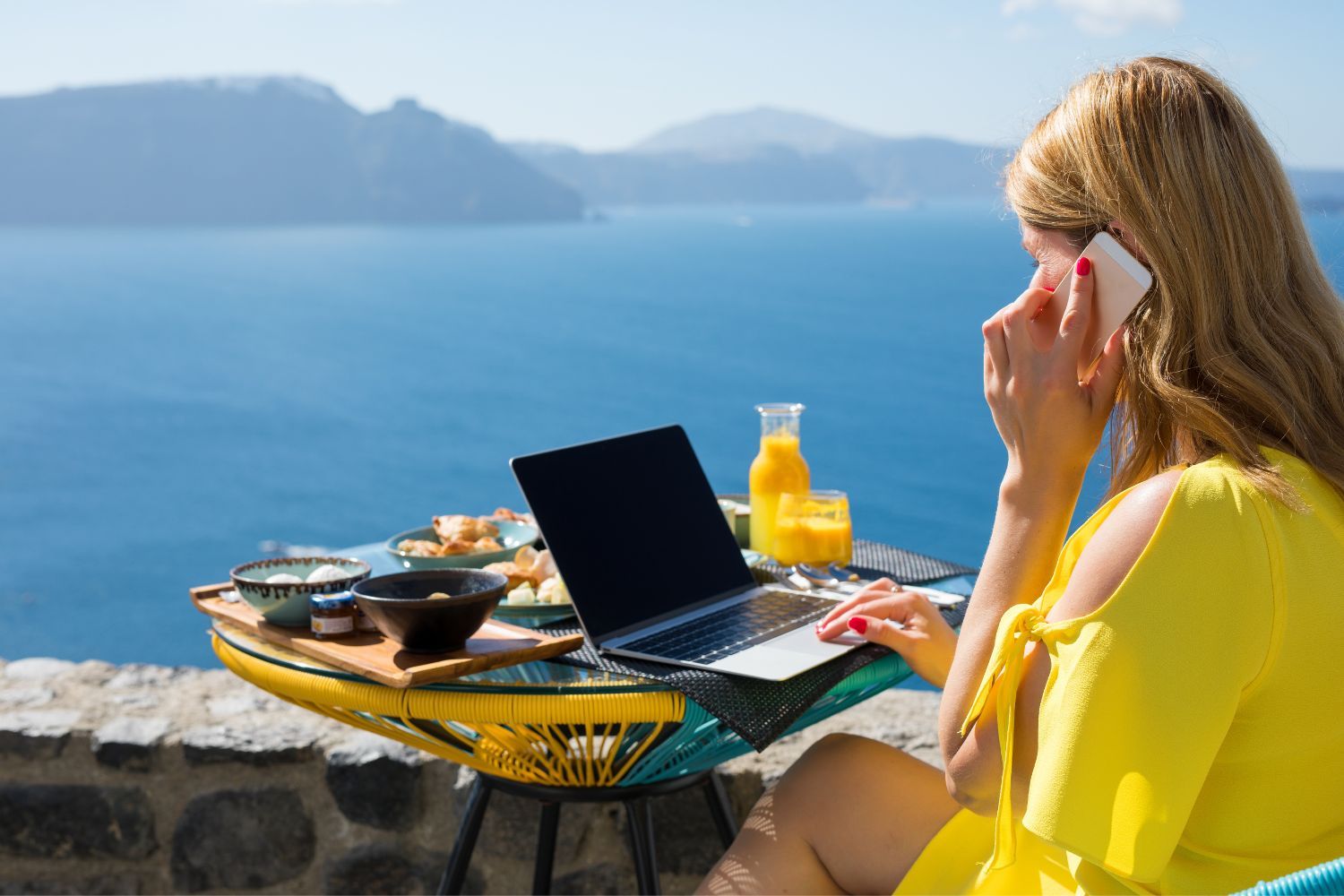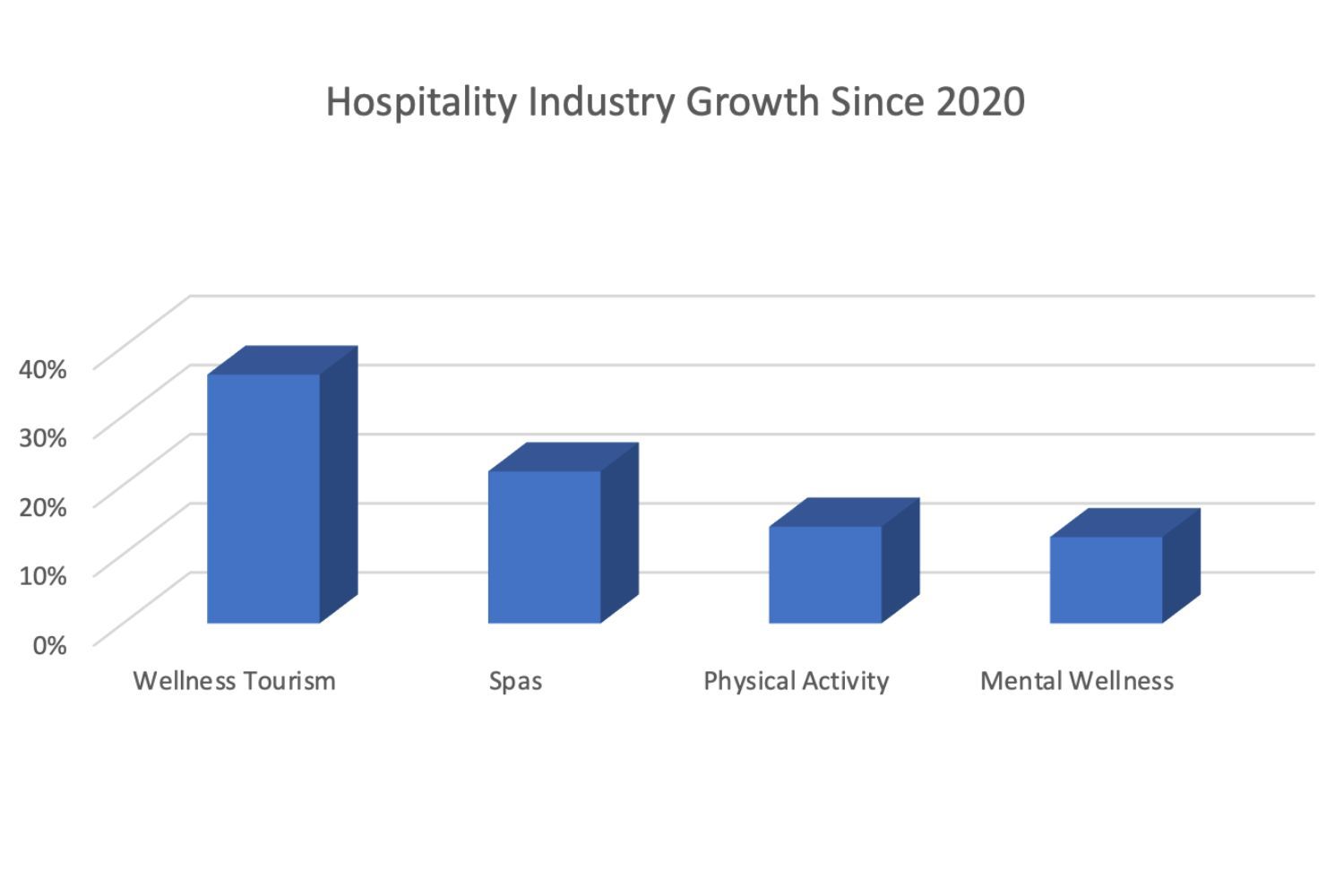Leadership Insights
Trends induced by the "new normal" of remote/hybrid work

The traditional workplace, once synonymous with cubicles and water cooler conversations, has undergone a significant transformation.
As of 2023, a substantial shift has occurred, with 12.7% of full-time employees working from home and 28.2% adopting a hybrid model. The boundaries of the workplace have expanded, and the concept of a "desk" now encompasses kitchen tables, cosy cafes, and beyond.
Forward-thinking companies are embracing this new era of flexible work arrangements, recognising the benefits of attracting and retaining top talent. By adopting remote work, organisations can tap into a global talent pool, foster autonomy and empowerment, and cultivate a culture of innovation.
However, the implications of this shift extend far beyond individual companies. Industries, particularly hospitality, are undergoing profound transformations. Hotels and co-working spaces are evolving into dynamic work hubs, offering productive and inspiring environments that cater to the needs of remote and hybrid workers. This shift has reshaped how we work, collaborate, and innovate, marking a significant milestone in the future of work.
Hospitality's Adaptation to Remote Work Realities
In response to the burgeoning trends of remote and hybrid work, the hospitality industry is undergoing a metamorphosis, redefining its role beyond mere accommodation. No longer confined to traditional roles, hotels and co-working spaces are emerging as vital players in the dynamic landscape of remote and hybrid work.
The Rise of "Workcations"
With remote work blurring the lines between professional and personal life, many professionals opt for "workcations" – combining work responsibilities with leisure travel. This trend signifies not just a desire for flexibility but a fundamental redefinition of the traditional notions of work and leisure, where professionals seek to maximise their time by seamlessly integrating work into their lifestyle choices. This shift in mindset has sparked a surge in demand for accommodations catering to these modern nomads' unique needs. Hotels and resorts are witnessing an increasing preference for reliable Wi-Fi, dedicated workspaces, and facilities conducive to both work and relaxation. By providing these essentials, hospitality establishments are meeting the practical needs of remote workers and facilitating a holistic approach to wellbeing, recognising that actual productivity flourishes when balanced with moments of rest and rejuvenation.
As remote work becomes increasingly prevalent, there's a growing demand for accommodations catering to productivity and relaxation. One such retreat is The Siam, offering a perfect mix of modern conveniences and cultural charm for digital nomads and remote workers seeking a tranquil yet productive environment.

Wellness and Work-Life Balance
The industry is undergoing a profound evolution as it adapts to the remote work model, emphasising wellness and work-life balance. Beyond traditional amenities, hotels and resorts are crafting wellness retreats that promote mindfulness, stress management, and inner balance. From guided meditation sessions to personalised wellness plans, these retreats offer guests a sanctuary to disconnect from daily pressures and reconnect with themselves amidst serene natural environments. By embracing this holistic approach to mental wellness, the hospitality industry is meeting the growing demand for holistic wellbeing and setting a new standard for self-care and rejuvenation in today's fast-paced world.
In late 2021, Airbnb surveyed 7,500 remote employees. The results revealed that over a third (38 per cent) of respondents expressed a preference for quitting their jobs rather than returning to full-time, in-person work.
Technological Advancements
In the aftermath of the pandemic and the surge in remote work, the hospitality industry is witnessing a profound transformation driven by cutting-edge technologies. Hotels increasingly leverage AI-powered chatbots and virtual assistants to provide personalised recommendations, assist with bookings, and offer real-time customer support, enhancing the guest experience. Furthermore, integrating Internet of Things (IoT) devices allows for smart room features such as voice-activated controls, smart thermostats, and automated lighting systems, offering guests convenience and customisation options. Additionally, advanced data analytics tools enable hotels to gather insights on guest preferences and behaviour, facilitating targeted marketing campaigns and personalised service delivery. These tech-driven innovations not only cater to the needs of the modern traveller but also position hotels as pioneers in the digital age, redefining the hospitality landscape with enhanced efficiency, personalisation, and convenience.

Evolving Hospitality Job Roles
With the evolution of traditional roles, the hospitality industry is witnessing the emergence of new job roles tailored to the needs of remote workers. Among these innovative positions is the Digital Experience Coordinator, who orchestrates personalised digital guest experiences. From recommending remote work-friendly amenities to facilitating virtual tours of local attractions, these coordinators enhance the guest experience through tailored digital solutions. Additionally, the Wellness Concierge has become integral in promoting holistic wellbeing, curating bespoke wellness programs offering guidance on mindfulness activities and rejuvenating spa treatments. As the demand for remote work grows, the Remote Work Liaison plays a crucial role in ensuring guests have access to essential amenities such as high-speed internet and ergonomic workspaces, creating an optimal environment for productivity and relaxation. These new job roles exemplify the hospitality industry's commitment to innovation and guest-centricity in an era of remote work and digital connectivity.
Sustainable Retreats:
The rise of remote work has sparked a unique transformation in the hospitality industry, intertwining with a growing emphasis on sustainability. As professionals embrace location-independent lifestyles, the demand for eco-conscious lodging options has surged. This shift has led to the emergence of sustainable hotels and nature-centric travel experiences, catering to the values of environmentally conscious travellers. For example, hotels like Pacuare Lodge in Costa Rica have incorporated solar energy systems, rainwater harvesting, and locally sourced materials into their design, offering guests a luxurious yet eco-friendly retreat. Hospitality providers are responding by implementing energy-efficient practices and offering amenities that align with sustainable principles, reflecting a broader societal shift towards environmental stewardship. This convergence of remote work and sustainable travel is reshaping the hospitality landscape, driving innovation and fostering a new era of eco-friendly hospitality experiences.
Hotels and retreats increasingly become experiential destinations, offering guests opportunities to engage in immersive activities, foster meaningful connections, and pursue personal development goals. Moreover, this shift towards holistic hospitality extends beyond physical spaces, as hotels leverage digital platforms to create virtual communities and offer remote work-friendly amenities. By embracing this paradigm shift, the hospitality industry is not only meeting the evolving needs of today's travellers but also reshaping the future of work and leisure in profound ways.
Regarding the future of work, executive talent capable of thriving in this new environment is crucial for businesses looking to stay ahead. Let the experts guide you toward leadership that thrives in this ever-changing environment, ensuring your organisation's success in future years.
Sources: https://www.forbes.com/advisor/business/remote-work-statistics/ March, 2024.
https://www.hiphotels.com/hotels/asia/thailand/the-siam
https://www.forbes.com/sites/ronaberg/2023/11/20/the-future-of-wellness-new-data-on-wellness-travel-mental-wellness/?sh=4589285e36d7 November, 2023.